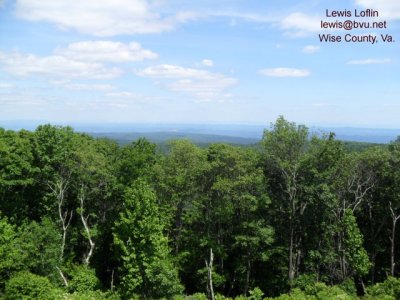VA. Colleges May Bar Illegal Immigrants
By Jerry Markon
February 26, 2004; Page B01 Judge's Ruling Is Said to Be U.S. First
A federal judge in Alexandria ruled yesterday that Virginia's
colleges and universities may deny admission to illegal immigrants
-- a ruling that experts said was the first of its kind in the
nation.
The decision by U.S. District Judge T.S. Ellis III came in a lawsuit
filed against seven Virginia schools accused of violating the rights
of the immigrants by refusing them entry.
"It is clear that denying illegal aliens admission to public
colleges and universities simply removes another public incentive
for illegal immigration," Ellis wrote. He stopped short of
dismissing the case, however, ruling that it could proceed to trial
because the plaintiffs have a right to try to prove whether the
schools are using federal standards to identify applicants who are
in the country illegally.
Virginia Attorney General Jerry W. Kilgore (R), who is defending the
schools, said he was pleased by the ruling. Kilgore's 2002 memo to
Virginia's public colleges and universities, which urged them to
reject illegal immigrants, was one impetus for the lawsuit, Ellis
wrote. The suit was filed in September in U.S. District Court in
Alexandria.
"Legal immigration has made this country what it is," Kilgore said
in a statement. "I continue to believe that it is not too much to
ask that people obey the laws of our society before they take
advantage of what our society has to offer."
Tisha Tallman, an attorney for the plaintiffs, who include a high
school senior who is an illegal immigrant, said she is "delighted"
the case is allowed to continue. "We are reviewing the judge's
decision," she said, ". . . and will then make a determination on
what next steps we will be taking."
The lawsuit names the University of Virginia, Northern Virginia
Community College, Virginia Tech, the College of William and Mary,
Virginia Commonwealth University, George Mason University and James
Madison University as defendants.
The issue of granting access to higher education for illegal
immigrants has become increasingly controversial in recent years.
The Virginia House of Delegates this month passed a bill that would
prohibit admission of illegal immigrants by public colleges and
universities. The measure, which lawyers said also is the only one
of its kind in the nation, is pending in the Senate.
The Virginia bill and Ellis's ruling run counter to a recent
national trend in which seven states have allowed illegal immigrants
to pay in-state tuition rates at public colleges, said Josh
Bernstein, director of federal policy for the National Immigration
Law Center. Maryland passed such a bill last year, but it was vetoed
by Gov. Robert L. Ehrlich Jr. (R).
The U.S. Supreme Court ruled in 1982 that illegal immigrants are
entitled to a primary and secondary education, but it has been
silent on higher education. In 1998, a federal judge in California
struck down the state's Proposition 187 ballot initiative limiting
services to immigrants, including access to higher education.
Lawyers said that is the only other time a federal judge has
considered the issue before Ellis's ruling yesterday.
One of the schools that was sued in the Alexandria case, Northern
Virginia Community College, allows admission of illegal immigrants
but does not let them pay in-state tuition, said Everett Vann
Eberhardt, the school's director of legal affairs. "Why we were part
of that lawsuit, I'm not sure I understand," he said.
Staff writer Amy Argetsinger contributed to this report.
2004 The Washington Post Company
Update: SB 1037 Tuition, in-state; denied to illegal aliens.
Emmett W. Hanger, Jr.
Summary as passed Senate: (all summaries) In-state tuition; illegal aliens. Establishes that an alien who is unlawfully present in the United States shall not be eligible for in-state tuition unless he meets all of the following criteria: (i) he has resided with his parent, guardian, or other person standing in loco parentis while attending a public or private high school in this state; (ii) he has graduated from a public or private high school in Virginia or has received a General Education Development (GED) certificate in Virginia; (iii) he has resided in the Commonwealth for at least three years as of the date he graduated from high school, or one year of residency if a veteran or an active duty member of the U.S. Armed Forces;
(iv) he has registered as an entering student in an institution of higher education; (v) he has provided an affidavit to the institution stating that he has filed an application to become a permanent resident of the United States and is actively pursuing such permanent residency or will do so as soon as he is eligible; and (vi) he has submitted evidence that he, or in the case of a dependent student, at least one parent, guardian, or person standing in loco parentis, has filed, unless exempted by state law, Virginia income tax returns for at least three years prior to the date of enrollment. 01/13/09
- 2017 Website Updates & Deletions
- Web Master Homepage
- Bristol, Southwest Virginia Revealed
- Science & Technology
- Hobby Electronics
- US Constitution
- Christianity 101
- Religious Themes
- Debunking the Jesus-Mithra Connection
- Is it Christianity or Mithraism?
- Saul of Tarsus, Mithraic Cults, and Christ's Blood
- Democracy and the Origins of the US Constitution
- On Religion and the Fall of Civilization: Quotes from Will Durant
- Thoughts on Theistic Evolution and Deism by Lewis Loflin
- My Answer to a Secular Fundamentalist by Lewis Loflin
- Why Judaism Is The Key To Deism
- Judaism and politics
- About Jewish proselytizing
- Why Islam is in Desperate Need of a Reformation
» General Subjects
» Archive 1 » Archive 2 » Archive 3
» Archive 4 » Archive 5 » Archive 6
» Archive 7 » Archive 8 » Archive 9

